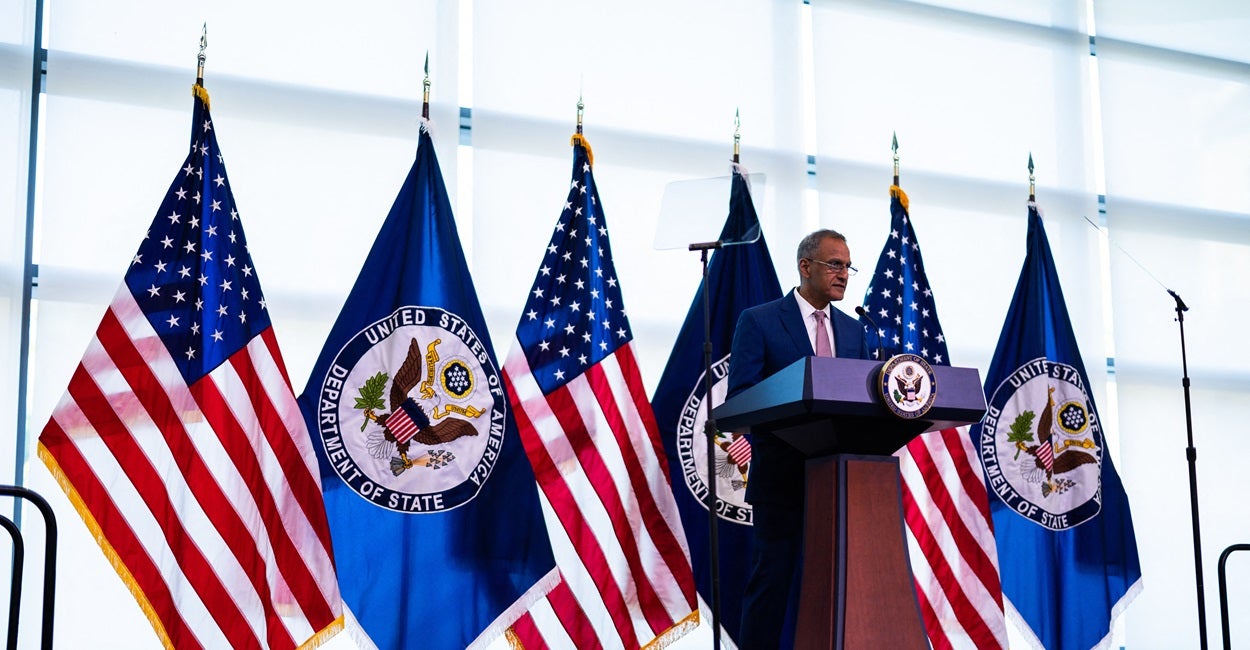Is DEI Worth Saving?
Is anything worth saving from the State Department’s new but vast diversity, equity, inclusion, and accessibility apparatus? Executive summary: No. As the summer 2020 high... Read More The post Is DEI Worth Saving? appeared first on The Daily Signal.

Is anything worth saving from the State Department’s new but vast diversity, equity, inclusion, and accessibility apparatus?
Executive summary: No.
As the summer 2020 high water mark of woke recedes, some U.S. institutions, from big companies to colleges, are gently backing off DEI, at least by name.
But not the State Department. On his first day, President Joe Biden “charged the Federal Government with . . . addressing systemic racism in our Nation’s policies and programs” via “an ambitious, whole-of-government approach,” writes Chris Rufo. Biden wanted woke ideology suffusing domestic and foreign policy.
It’s hard to exaggerate how much DEI has infested every aspect of work, at home and abroad at the State Department. With action on DEI now required for every officer’s annual evaluation, there are now a lot of solutions in search of a problem to address—and write about.
Overseas, every embassy and consulate has a DEI council, which scrambles vainly to think of something new to do, in an organization that has pretty much done “the work” already.
In one large U.S. Embassy, an action memo now asks staff: “Have you looked at all DEIA considerations while putting together this meeting/event?” To get approval for the U.S. ambassador to show up, the organizer must confirm that “the guest list reflects gender, socioeconomic, and regional diversity.”
Reaching a variety of audiences is a goal so obvious for a U.S. diplomatic mission that it hardly needs to be repeated in every meeting request. But many embassy events are tailored to a specific group—for example, children, disabled athletes, or women entrepreneurs. Achieving perfect “gender, socioeconomic, and regional diversity” in such gatherings may not only be impossible, it can also be undesirable.
Domestically, there is anxiety to do something, anything, on DEI—and be seen doing it.
The State Department recently advertised an upcoming “impactful DEIA … music event focused on eliminating implicit bias.” The artist, a department employee, promised to “emphasize the significance of each song related to DEIA values, inviting everyone to actively participate in this important dialogue.”
“Together,” warned the event flyer, “we can listen, learn, and immerse ourselves in a transformative 45-minute experience that deepens our understanding of DEIA principles.” And most importantly, they can all include it in their annual evaluations.
In the last two years, the department spent $77 million on DEI-related efforts. That sounds like a lot, but you can blow a ton of money hiring consultants and buying their books.
Attendees to State Department training courses are often offered free books, bulk-purchased with your tax dollars. One of this year’s giveaways was a book called “Subtle Acts of Exclusion,” subtitled “how to understand, identify, and stop microaggressions.”
“Microaggressions” are a dubious concept intended to label behavior that is unpleasant but not unlawful or actionable by the employer. Even that term doesn’t sweep wide enough for authors Michael Baran (he/him) and Tiffany Jana (whose “gender identity has evolved to a new intersection”). So, they invented the term “Subtle Acts of Exclusion” or SAEs, a category which casts the net of possible offenses ludicrously wide.
According to Jana, she is “black, a gender nonbinary, a Christian, an invisibly disabled, a domestic violence survivor, and an LGBTQIA person,” who earns a living as a “global diversity, equity and inclusion consultant,” and is the CEO of a “collection of companies working to advance inclusive workplaces” (one of which sells her book at $17.95 to the government).
Her co-author, Baran, believes he “walk[s] through the world with a lot of privilege” as a “heterosexual white man” and “a Jewish person.” Obviously, he knows little about how hiring and promotion works at the State Department, where any “privilege” would not be his.
Baran and Jana’s book could fill bingo cards with woke jargon—“systems of power and hegemony,” “attributional ambiguity,” “structural exclusion,” “marginalized,” “emotional harm”—and it makes sure to flog the authors’ extensive list of additional training programs.
The authors note that they rejected the working title “Death by a Thousand Cuts,” not because it is a cliche used many times before, but because the expression “could be considered a microaggression.” This was a “specific type of torture and execution previously used in China, Korea, and Vietnam,” they explain, and therefore the term is “culturally insensitive.” In truth, few Americans know much of their own history, let alone Asia’s, and I doubt anyone would ever have found this title offensive—but the authors live in a different world than you and me.
The best proof of that is an example of what they call a “race and ethnicity SAE.” Baran is watching a football game with some friends, one of whom says “no problemo” before a field goal attempt. Baran notes that “there was no one present of Hispanic or Latinx descent,” yet he felt compelled to challenge the football fan for offending a hypothetical phantom audience.
According to Baran, he “could tell that it really affected the thinking of the initiator deeply,” which was “exciting and promising.” My guess is that Baran’s friend was thinking about why he’d invited this sanctimonious killjoy to watch the game with him.
When federal agencies must buy nonsense books to indoctrinate staff to solve a nonexistent problem, it’s time to call it quits. DEI has got to go. There are already offices and mechanisms to keep employees in line with both law and acceptable behavior and to remedy breaches.
State needs to jettison the DEI complex, save money, and put its employees to more useful work.
The post Is DEI Worth Saving? appeared first on The Daily Signal.










